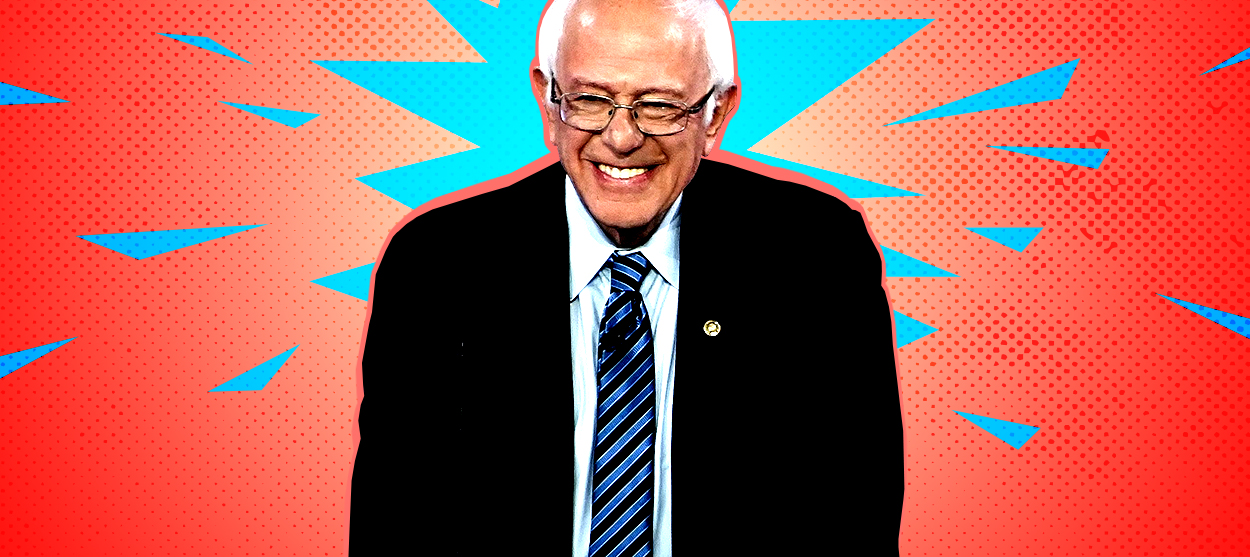The Iowa debacle is a boon for Bernie
The 2020 Democratic primary has a clear frontrunner


A free daily email with the biggest news stories of the day – and the best features from TheWeek.com
You are now subscribed
Your newsletter sign-up was successful
The Iowa caucus was a disastrous 50-car pileup of technical failures. An app for reporting results apparently developed at great expense by the Iowa Democratic Party completely failed, and party officials didn't have a sufficient backup plan. One precinct captain was explaining how he had been on hold with the party headquarters for over an hour to CNN's Wolf Blitzer when they abruptly answered the phone, only to hang up on him when he didn't answer fast enough. By midnight, less than 2 percent of the results were officially reported.
Nevertheless, it is reasonably clear that Bernie Sanders is now the frontrunner for the 2020 Democratic nomination. Sanders may or may not win Iowa outright, but given that he was ahead in the final polls and that reports from Monday night seemed to confirm his dominant position in many highly populated areas of the state, he will certainly be at or near the top.
Now, both Elizabeth Warren and Pete Buttigieg also reportedly did well in Iowa, and if they are near the top in the final count then that might breathe some life into their campaigns. But there are only a relative handful of delegates actually at stake, and the bungled caucus is going to cut into any burst of positive media coverage and perception of momentum that would come from an upset win.
The Week
Escape your echo chamber. Get the facts behind the news, plus analysis from multiple perspectives.

Sign up for The Week's Free Newsletters
From our morning news briefing to a weekly Good News Newsletter, get the best of The Week delivered directly to your inbox.
From our morning news briefing to a weekly Good News Newsletter, get the best of The Week delivered directly to your inbox.
But most important is that the campaign of Sanders' major rival, Joe Biden, seemingly collapsed in Iowa. Dozens of caucus sites reported little or no Biden support, and there were suggestions he may even finish in fifth place behind Amy Klobuchar. This is probably because his ground game is weak, and the argument for his candidacy is based on fear of Trump rather than genuine enthusiasm. His campaign was reduced to limply complaining about process to distract from the epic loss. It's not a coincidence that both of Biden's previous campaigns for president were disastrous flops.
New Hampshire votes next, and Sanders is currently leading polls there by nearly 10 points. Even with a tie or narrow defeat in Iowa, he should be able to win the state easily — putting him in an ideal position to scoop up Nevada and maybe even South Carolina. From then he could very well turn Super Tuesday into a rout.
Nationally, Sanders has closed the polling gap with Biden from nearly 10 points in early January to just over 3 points now. A humiliating defeat in Iowa and then New Hampshire is going to severely dent the perception of electability that is the only possible justification for nominating Biden. The general election is going to be a grueling slog — getting bested by Amy Klobuchar and Pete Buttigieg doesn't exactly speak well of Biden's stamina and competence.
So where will Biden supporters go? Morning Consult reports that Sanders is their most frequent second choice, with 27 percent going to him. Michael Bloomberg is the runner-up with 21 percent, but he is likely going to have some trouble once people start remembering his awful record of sexism, racist policing, and how he used to be a Republican who endorsed George W. Bush in 2004 (as well as, you know, blatantly trying to buy the nomination). If Biden's numbers start to crater, and Sanders racks up a few state victories, as seems likely, he will very likely to scoop up a plurality of Biden supporters. Indecisive Democrats often swing behind the person who seems to be already in the lead.
A free daily email with the biggest news stories of the day – and the best features from TheWeek.com
Obviously we are still very early in the process, and things could change rapidly. Nothing is guaranteed. But for the moment, everything is coming up Bernie.
Ryan Cooper is a national correspondent at TheWeek.com. His work has appeared in the Washington Monthly, The New Republic, and the Washington Post.
